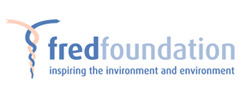#BeatPollution: WECF at UNEA3 in Nairobi
Reflections on the UN Environmental Assembly in Nairobi “Towards a Pollution free Planet
11.12.2017 |

At the 3rd UN Environment Assembly (27 November – 6 December) in Nairobi, Kenya, WECF brought a delegation from Indonesia, Uganda, Albania, Sweden and the Netherlands and Women2030 partners WEP from Africa and APWLD from Asia, who all contributed significantly to the important work of the Women’s Major Group.
#BeatPollution
The theme of this 3rd UNEA was “Towards a Pollution free Planet”, check #BeatPollution. WECF, WEP and Balifokus presented the results of their project “Gender and Chemicals” during the ‘Film Premiere’ event organised on the 5th of December with over 100 participants. The film shows how women and men in Nigeria are exposed to highly hazardous chemicals and waste, such as Persistent Organic Pollutants (POPs) and Electronic Waste (e-waste). The film also shows good practices by women and men on how to reduce exposure whilst improving gender-equality, such as a community-waste-collection scheme, a women’s organic farming group that makes their own ‘natural-pesticides’ from the Neem tree, and a program to safely treat e-waste. See the trailer here.
#BeatPollution
The theme of this 3rd UNEA was “Towards a Pollution free Planet”. WECF, WEP and Balifokus presented the results of their project “Gender and Chemicals” during the ‘Film Premiere’ event organised on the 5th of December with over 100 participants.
http://www.wecf.eu/english/articles/2017/12/UNEA3_WECF.php
Plastics, Gender and the Environment
WECF also launched its report “Plastics, Gender and the Environment ” which presents an overview of existing research on gender dimensions throughout the value chain of the plastics industry. Plastics are made from petrol, i.e. fossil fuels, and pollute the environment during production and becoming waste.

Women working in plastic production and recycling are prone to specific health damage. Marine plastic litter has become one of the biggest problems: it is estimated that there will be more plastics than fish in the oceans by 2050. Plastics build up in the food chain, and increasingly fish and shell fish sold for consumption by humans contain micro plastics. WECF has joined the #breakfreefromplastics movement and calls for divestment and bans on plastics, first and foremost plastic bottles and bags.
Call for Action
WECF supported the Gender Focal Point of UNEP in organising the annual meeting of the Network of Women Ministers and Leaders for the Environment, with a 100+ women leaders who worked in round tables and presented a Call for Action on “Gender and a Pollution Free Planet”. The “Call for Action” was presented by the Minister of Environment of Luxembourg on behalf of the participants, see here.
WECF’s communication officer was active in the Women’s Major Group comm-team, which deployed 3 campaigns: 1) Real Wonder Women 2) No Dirty Business at UNEA and 3) Defend Women Human and Environmental Rights Defenders.
Marine Litter and Micro-Plastics
WECF and members of the WMG contributed to the resolutions negotiated at UNEA-3, including on Marine Litter and Micro-Plastics, on Soil Pollution, on Environmental Technologies and on Water and Wastewater. WECF’s director gave a presentation on ecological waste water solutions for rural areas during the ‘Science Policy Business Forum’, and spoke at the Multi-Stakeholder Dialogue on chemicals and electronic waste and human rights.
Women's Major Group silent action
The Women's Major Group organised a silent action in the memory of the 200 women environmental and human rights defenders who were assassinated during last 12 months while protecting their land and people. Prof John Knox, the UN Special Rapporteur for Human Rights & the Environment, joined the tribute and read out the names of 21 women who were recently killed. Every week 4 women and men environmental activists are murdered. Please, see the draft UNEP policy on Environmental Rights Defenders, the WMG press release and the video by UN Environment.
Related News
The 62nd Commission on the Status of Women
Worldwide representatives and officials gathered at the United Nations headquarters in New York City to discuss the matters of women and sustainability
28.03.2018
Petition: calling for international solidarity to support environmental defenders Victoria Tauli-Corpuz & Joan Carling
Feminists Condemn Philippines President Duterte’s Accusation of Activists and Indigenous People Leaders as Terrorists
14.03.2018
Using community-based data monitoring to track gender equality realities on the ground
New York: Official Side Event to CSW62
12.03.2018
Implementing Agenda 2030 in Georgia: Where Are We Now?
WECF organised with Georgian government and the UN a workshop on the Sustainable Development Goals in Tbilisi, 19-21 February 2018
22.02.2018 | Tbilisi, Georgia



































